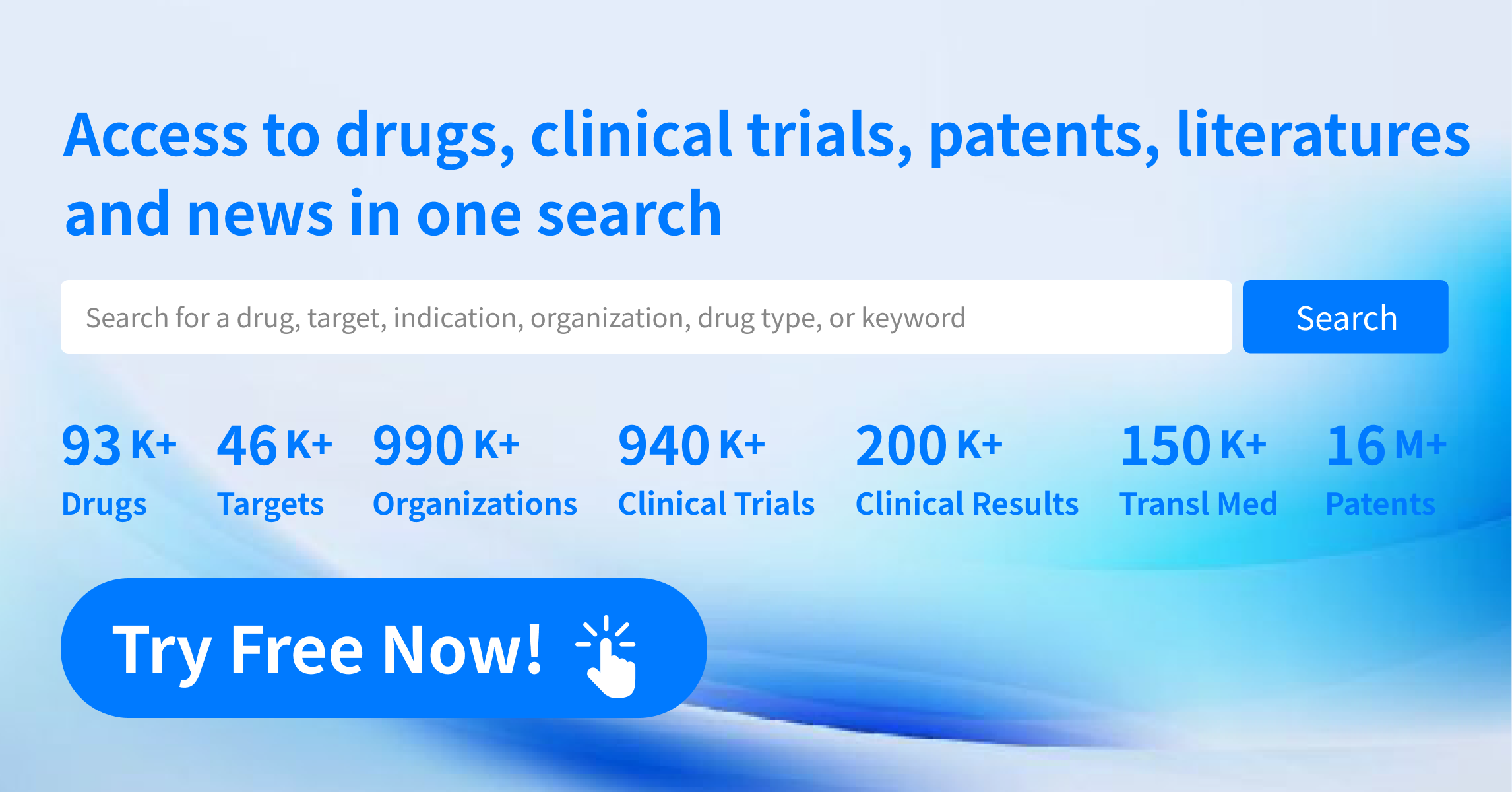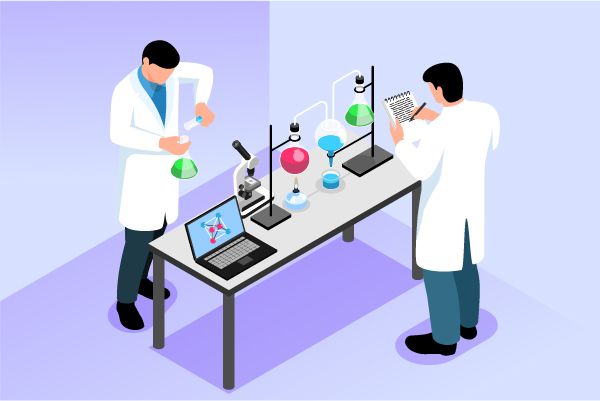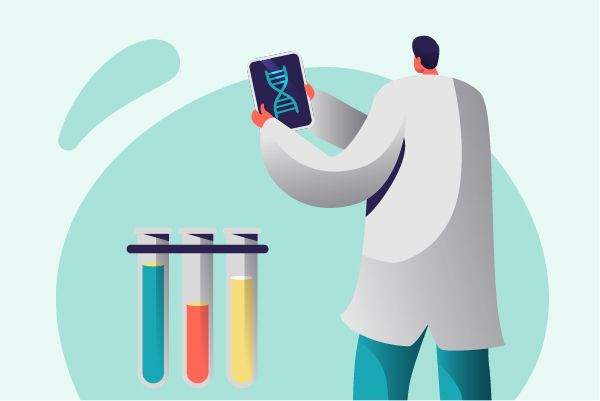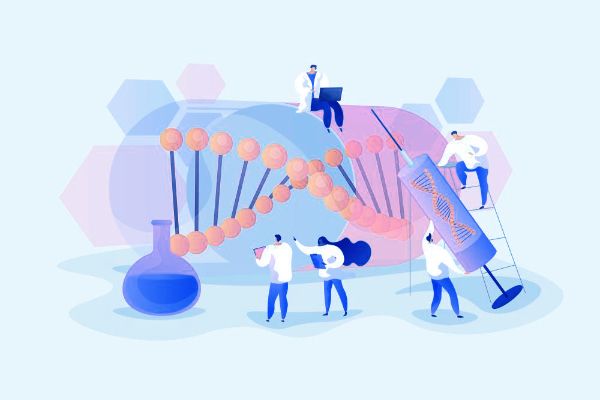Rising Star in Therapeutics: The 2023 Breakthroughs and Future Prospects of Bispecific Antibodies
Bispecific antibodies (commonly abbreviated as BsAbs) are an innovative class of biological drugs capable of simultaneously binding to two different antigens or epitopes. They exhibit unique therapeutic potential, offering higher specificity, possibly enhanced efficacy, and potentially reduced side effects compared to traditional monoclonal antibodies.
2023: A Breakthrough Year for Bispecific Antibodies
The year 2023 marks a significant turning point for bispecific antibody products, with many entering the market in bulk. Major multinational companies like Roche and Johnson & Johnson are reaping the rewards of their investments in this field. Roche has seen notable success in the Chinese market, with the approval of its CD20/CD3 bispecific antibody Glofitamab and the ophthalmic bispecific antibody Faricimab. Johnson & Johnson's EGFR/c-MET bispecific antibody Amivantamab has shown great potential in treating EGFR-mutant non-small cell lung cancer (NSCLC) and has filed multiple marketing applications domestically.
Bispecific antibodies are showing immense potential in the treatment of both hematologic malignancies and solid tumors, as well as opening new avenues in ophthalmology, driving market growth continuously. As domestic bispecific antibodies enter a period of substantial returns in the coming years, the market is expected to see significant growth.
Domestic Progress: Akeso Biopharma and Others
In 2023, Akeso Biopharma achieved annual profitability through its bispecific products. The PD-1/VEGF bispecific antibody Ivonevib (Credit: Akeso) received an upfront payment of $500 million, while Cadonilimab, as the first domestically produced bispecific antibody, reached sales of 1.358 billion RMB. In contrast, sales of the PD-1 antibody Penpulimab fell by 56% year-over-year to 273 million RMB, reflecting a directional shift in the antibody drug market.
Bispecific antibodies have a broad development and application prospect, not only playing a crucial role in oncology but also showing potential in ophthalmology and hematological diseases. With technological advancements and market expansion, the "golden era" of bispecific antibodies has arrived.
“Bispecific Antibodies” Ready to Take Off
In a review published in Nature, Raymond J. Deshaies, a member of the National Academy of Sciences, suggests that multispecific drugs, including bispecific antibodies, are poised to lead the "fourth pharmaceutical revolution."
Expanding Horizons: Clinical Trials and Approvals
On May 31: Akeso announced milestone clinical trial results: their self-developed Ivonescimab (PD-1/VEGF bispecific antibody) achieved the primary endpoint of progression-free survival (PFS) in a Phase III registration trial comparing it head-to-head with Pembrolizumab (Keytruda) as first-line treatment for PD-L1 positive locally advanced or metastatic NSCLC. The drug also marked the first globally to prove superior efficacy over Pembrolizumab in a Phase III monotherapy head-to-head clinical trial. Their PD-1/CTLA-4 bispecific antibody was also approved, achieving sales of 1.358 billion RMB in 2023.
July 25: China's National Medical Products Administration (NMPA) Drug Evaluation Center (CDE) website announced that AbbVie's clinical trial application for ABBV-706, a lyophilized powder injection targeting SEZ6 ADC, was accepted. ABBV-706 is currently in Phase I clinical trials globally.
August 9: Merck and curon announced a final agreement for Merck to acquire the bispecific antibody CN201 for $700 million upfront, aiming to treat B-cell-related diseases.
August 21: Johnson & Johnson announced FDA approval of its EGFR/MET bispecific antibody Amivantamab in combination with the third-generation EGFR-TKI Lazcluze for first-line treatment of NSCLC with EGFR exon 19 deletions or exon 21 L858R substitutions. Clinical trials showed that this combination reduced the risk of disease progression or death by 30% compared to control drugs.
August 26: Regeneron Pharmaceuticals announced the approval of its bispecific antibody Odronextamab in the EU. It became the first bispecific antibody to treat relapsed or refractory DLBCL and FL in patients who have undergone at least two systemic treatments. Odronextamab offers treatment convenience in outpatient settings and aims to achieve complete remission, improving patient treatment outcomes and quality of life.
August 27: Navigator Medicines announced the completion of a $100 million Series A financing round. The funds will be used to promote its flagship product, NAV-240 (formerly known as IMB101), as well as other monoclonal and bispecific antibodies targeting OX40L. NAV-240 is a potential best-in-class bispecific antibody currently in Phase I clinical trials. It targets both OX40L and TNFα, two key players in the pathogenesis of various inflammatory diseases. The combined action on these two targets may enhance therapeutic efficacy, offering new treatment options for complex autoimmune diseases. RA Capital Management and Forbion co-led this round of financing, which will expedite the clinical research process of NAV-240. A multi-dose Phase Ib trial is expected to commence in the second half of this year. Additionally, IMBiologics will receive a $20 million upfront payment and is eligible for up to $925 million in development and commercial milestone payments.
Domestic Innovative Bispecific Antibodies Show Promising Advances
At the 2024 ASCO Annual Meeting, several domestic enterprises showcased innovative bispecific antibody products and their clinical data. Innovent Biologics disclosed data on its innovative dual antibodies, IBI389 and IBI363. IBI389 is a bispecific antibody targeting CLDN18.2/CD3 and has completed the first patient dosing in the Phase I clinical trial for advanced malignancies. Preclinical results show that IBI389 can bind to tumor cells, even in cell lines with low CLDN18.2 expression, demonstrating significant antitumor effects. IBI363 is a PD-1/IL-2 bispecific antibody that has shown preliminary efficacy and safety in patients with melanoma and colorectal cancer.
Sino Biopharm unveiled data on its CD137/PD-L1 bispecific antibody FS222 in melanoma. Studies indicate that FS222 exhibits excellent antitumor activity in various tumor types, particularly in melanoma patients who have previously received PD-1 antibody treatment. The overall response rate reached 47.4%, and the disease control rate was 68.4%.
These data suggest that domestic innovative products have made significant advances in the field of bispecific antibodies, potentially becoming a key area for international licensing in the future.
Bispecific Antibody Drug Market to Surpass $10 Billion by 2024
In the first half of 2024, the global bispecific antibody (BsAb) drug market witnessed significant growth, reaching $6 billion. The primary driver of this growth was Roche's VEGF/Ang2 BsAb, which alone achieved $2.154 billion in sales during this period. Although BsAbs are primarily used for cancer treatment, Roche's non-oncological BsAbs— specifically the FIX/FX BsAb for hemophilia and the VEGF/Ang2 BsAb for ophthalmic diseases—collectively generated $4.8 billion in sales, accounting for 80% of the entire BsAb market.
According to Market.us data, the global BsAb drug market was valued at $5.73 billion in 2022 and $8 billion in 2023. It is projected to grow at a compound annual growth rate (CAGR) of 37.5% from 2024 to 2033, reaching approximately $192.6 billion by 2033.
As of the end of 2023, the global BsAb drug market continued its growth trajectory, with CD3-targeting BsAbs comprising more than two-thirds of the approved BsAb drugs. This underscores the extensive application and importance of the CD3 target in the BsAb field. These CD3 BsAb drugs exhibit potent synergistic anti-tumor effects by simultaneously targeting tumor cells and immune cells, achieving significant clinical outcomes, particularly in the treatment of hematologic malignancies and certain solid tumors.
Currently, 15 BsAb drugs have been approved globally, with two products from Akeso Bio standing out, marking a significant presence of Chinese innovative pharmaceutical companies in the global BsAb arena. With advancements in technology and innovation, the BsAb field has attracted substantial investments, covering areas such as tumor immunotherapy BsAbs, CD3 BsAbs, autoimmune target-combination BsAbs, breakthroughs in CD3 BsAbs for solid tumors, and BsAb ADCs.
Looking ahead, BsAb drugs, due to their diverse mechanisms and differentiated designs, hold promise for achieving more clinical breakthroughs and becoming the next generation of biologic therapies for cancer, autoimmune, and infectious diseases. With the continuous expansion of the BsAb drug market and the maturation of R&D technologies, this field is expected to embrace further development opportunities and clinical application prospects.
Multidisciplinary Progress of "Bispecific Antibodies"
Bispecific antibodies (BsAbs) have experienced a significant surge in various medical fields, mainly concentrating on the following aspects:
1. Cancer Treatment
BsAbs have demonstrated immense application potential and therapeutic effects in cancer treatment. For example, Akeso's Ivonescimab (PD-1/VEGF BsAb) showcased superior efficacy compared to Keytruda in a Phase III clinical trial for PD-L1 positive locally advanced or metastatic non-small cell lung cancer (NSCLC). Additionally, there are no longer any fundamental technical barriers to BsAb development, and numerous pharmaceutical companies are actively advancing research to discover new, remarkable bispecific structures.
2. Treatment of Autoimmune Diseases
BsAbs also exhibit significant therapeutic potential in the field of autoimmune diseases. They can simultaneously target two different antigens or two different epitopes of the same antigen, thereby enhancing therapeutic efficacy through combined, multi-mechanistic pathways.
3. Treatment of Ophthalmic Diseases
Roche's VEGF/Ang2 BsAb has made groundbreaking progress in the treatment of ophthalmic diseases, achieving sales of $2.154 billion. This highlights the commercial value and application potential of BsAbs in ophthalmic treatments.
4. Treatment of Hemophilia
Hemlibra, an emicizumab-based BsAb, offers a new treatment option for patients with hemophilia A by bridging FIXa and FX, thereby promoting thrombin generation and restoring the coagulation process in patients.
5. Treatment of Non-Small Cell Lung Cancer (NSCLC)
Johnson & Johnson's Rybrevant (EGFR/c-MET BsAb) has shown breakthrough efficacy in treating patients with metastatic NSCLC harboring EGFR exon 20 insertion mutations, becoming the first FDA-approved drug targeting this specific mutation.
6. BsAb-Antibody Drug Conjugates (ADCs)
BsAb-ADCs, as an emerging strategy for cancer treatment, combine the advantages of BsAbs and ADCs, offering higher tumor selectivity and therapeutic efficacy. They have become a major focus of current research and development.
In summary, BsAbs exhibit significant therapeutic potential and market value in cancer, autoimmune diseases, ophthalmic diseases, hemophilia, and NSCLC. They have become a new hotspot in pharmaceutical research and development. With continuous technological advancements and the launch of more BsAb drugs, more clinical breakthroughs and market growth are anticipated in the coming years.
Future Prospects
Looking to the future, bispecific antibodies are emerging as stars in the medical field, demonstrating robust growth potential.
Firstly, bispecific antibodies, by simultaneously targeting two different signaling pathways or antigens, significantly enhance therapeutic efficacy. This is particularly evident in the field of oncology, where PD-1/PD-L1 bispecific strategies not only relieve immune suppression on T cells but also effectively inhibit tumor angiogenesis, providing patients with more pronounced clinical benefits.
Secondly, with ongoing technological advancements and industrial scaling, the production costs of bispecific antibodies are expected to gradually decrease. This reduction in cost will make these highly effective therapeutic drugs more affordable for a broader range of patients, thereby greatly improving drug accessibility.
Furthermore, the application domains of bispecific antibodies are rapidly expanding. Beyond cancer treatment, their therapeutic potential is being explored in autoimmune diseases, ophthalmic diseases, hemophilia, and more, suggesting that they will exhibit unique therapeutic effects in an increasing number of disease areas.
In addition, innovations and advancements in bispecific technology, such as the combination of bispecific antibodies with antibody-drug conjugates (ADCs), not only enhance the breadth and efficacy of treatment but also reduce the risk of drug resistance and activate different anti-tumor mechanisms. This provides more possibilities for clinical treatments.
As the commercialization of bispecific antibody projects accelerates, it is expected that more bispecific drugs will be approved for market entry in the future, with the market size projected to grow continuously, potentially reaching approximately $192.6 billion by 2033. This presents substantial market opportunities for pharmaceutical companies and offers patients a wider array of treatment options.
However, alongside the development of bispecific antibodies, ethical and social issues such as drug pricing and accessibility cannot be overlooked. It is essential to balance commercial interests and social responsibility during new drug research and development to ensure that every patient can benefit from the advancements in medical technology.
In summary, the future development of bispecific antibodies is full of potential. With continuous technological breakthroughs and in-depth clinical research, we have reason to remain confident in the progress of bispecific technology and the hope it brings to patients, anticipating that it will contribute more benefits to human health.
How to obtain the latest research advancements in the field of biopharmaceuticals?
In the Synapse database, you can keep abreast of the latest research and development advances in drugs, targets, indications, organizations, etc., anywhere and anytime, on a daily or weekly basis. Click on the image below to embark on a brand new journey of drug discovery!




